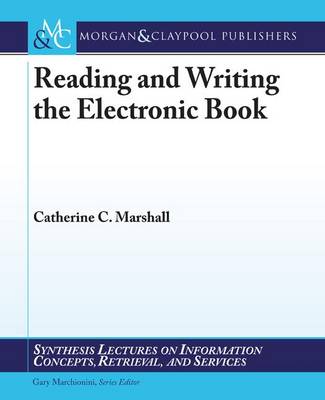Synthesis Lectures on Information Concepts, Retrieval, and Services
1 total work
Developments over the last twenty years have fueled considerable speculation about the future of the book and of reading itself. This book begins with a gloss over the history of electronic books, including the social and technical forces that have shaped their development. The focus then shifts to reading and how we interact with what we read: basic issues such as legibility, annotation, and navigation are examined as aspects of reading that ebooks inherit from their print legacy. Because reading is fundamentally communicative, I also take a closer look at the sociality of reading: how we read in a group and how we share what we read. Studies of reading and ebook use are integrated throughout the book, but Chapter 5 ""goes meta"" to explore how a researcher might go about designing his or her own reading-related studies.
No book about ebooks is complete without an explicit discussion of content preparation, i.e., how the electronic book is written. Hence, Chapter 6 delves into the underlying representation of ebooks and efforts to create and apply markup standards to them. This chapter also examines how print genres have made the journey to digital and how some emerging digital genres might be realized as ebooks. Finally, Chapter 7 discusses some beyond-the-book functionality: how can ebook platforms be transformed into portable personal libraries? In the end, my hope is that by the time the reader reaches the end of this book, he or she will feel equipped to perform the next set of studies, write the next set of articles, invent new ebook functionality, or simply engage in a heated argument with the stranger in seat 17C about the future of reading.
No book about ebooks is complete without an explicit discussion of content preparation, i.e., how the electronic book is written. Hence, Chapter 6 delves into the underlying representation of ebooks and efforts to create and apply markup standards to them. This chapter also examines how print genres have made the journey to digital and how some emerging digital genres might be realized as ebooks. Finally, Chapter 7 discusses some beyond-the-book functionality: how can ebook platforms be transformed into portable personal libraries? In the end, my hope is that by the time the reader reaches the end of this book, he or she will feel equipped to perform the next set of studies, write the next set of articles, invent new ebook functionality, or simply engage in a heated argument with the stranger in seat 17C about the future of reading.
